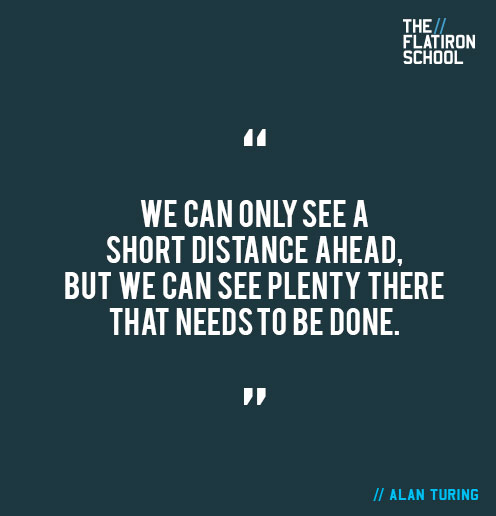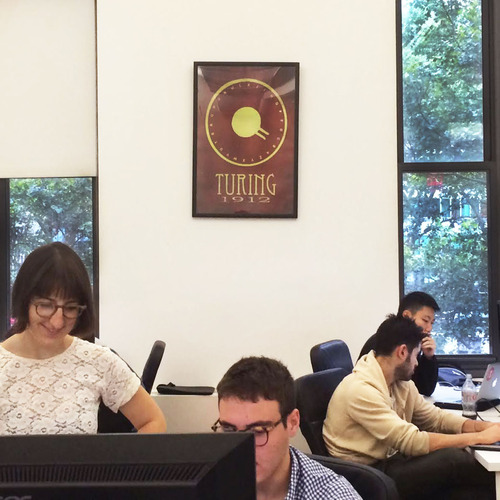Alan Turing: The Father of Theoretical Computer Science

This post originally appeared on October 3, 2014. The quote above is from Alan Turing’s essay, “Computing Machinery and Intelligence” (the one where he introduces the Turing Test). It might seem like an overarching statement about technology, but it’s actually about building a theoretical basis for artificial intelligence back when AI was just fantasy. As […]
This post originally appeared on October 3, 2014.

The quote above is from Alan Turing’s essay, “Computing Machinery and Intelligence” (the one where he introduces the Turing Test). It might seem like an overarching statement about technology, but it’s actually about building a theoretical basis for artificial intelligence back when AI was just fantasy. As the “father” of theoretical computer science, Olympic-quality long-distance runner, extraordinary genius, and tragic hero, Turing (1912-1954) packed a lot into his 42 years. Because so much of we do wouldn’t have been possible without him, he makes a regular appearance in programming lectures at Flatiron School. Here are three things you should know:
1. He helped make computer science a thing
He formalized concepts we use every day like, “algorithm” and “computation” with the Turing machine—a beautifully simple, totally hypothetical device that explores the possibilities of computation. The Turing machine, or “universal computing machine,” held its program on an infinite piece of tape and was capable of solving any algorithm. This set the groundwork for him (and others) to make the conceptual leap from impossible tape to using the computer’s own memory to hold the program.

2. He dropped math “bombes” in World War II
After moving to Bletchley Park (a house where Britain kept its codebreakers during WWII that was as ugly as it sounds), he gathered fast intelligence for the British Army. Thanks to him, much of the content in coded messages sent by the German army were swiftly passed along to allied forces…and he didn’t do it by just sitting there crunching numbers like an airplane passenger playing Sudoku. The German military’s cipher machine, appropriately named Enigma, was the source of the code. Turing initially developed and produced the prototype of the anti-Enigma “bombe”—an electro-mechanical device used to mechanize codebreaking that looked a lot like a backgammon board. The bombe cracked about two messages per minute (around 84,000 messages in total), including those used by the U-boats that threatened Britain’s food supply. It’s estimated that Bletchley Park’s operation shortened the war in Europe by as many as two to four years. Read more about how Turing saved lives with math in WWII here and here.
3. He beat everyone to artificial intelligence
In the same decade Isaac Asimov’s Three Laws of Robotics set rules for the thinking robots of science fiction, Turing founded the field of artificial intelligence and came up with a theoretical basis for it. In 1950, he proposed a test to figure out whether or not machines could think, now widely known as the Turing test. It’s kind of like reverse Captcha. And it implied that if we could write programs that were close enough to human cognition that they passed the Turing test, they wouldn’t be programs anymore. They would be actual minds. At the time, this all seemed like Asimov fancy (probably even to Turing). And it’s still not a very good way to actually determine whether or not a computer can think (although Eugene Goostman fooled a few folks). But it has inspired and challenged AI research from the start. We get now that Turing’s arrest and subsequent suicide were part of an enormously shameful chapter of recent history. His sexuality became public by a fluke—and because homosexuality was still considered a crime in Britain, he was arrested under the same law as Oscar Wilde 60 years before (along with about 75,000 other men throughout Britain’s history). Although the world has recently showered him with accolades, it doesn’t really erase the inhuman treatment he received in life. So here’s a hard question: would the people who persecuted Turing pass his test?
Disclaimer: The information in this blog is current as of February 2, 2016. Current policies, offerings, procedures, and programs may differ.



